Outdoor yoga, hiking and the freedom that comes with it
Yoga and mountains have more in common than you might think at first glance: Vastness, freedom, challenge, movement and ultimately the feeling of bliss.
Romana Schwaiger, yoga teacher, mountain hiking guide and founder of Yogaberge, talks about the special features of outdoor yoga and mountain hiking and gives tips on how to strengthen a mindful approach to inner and outer nature.
Outdoor yoga - the key differences to indoor yoga
Outdoor yoga heightens the senses and strengthens awareness of nature by consciously listening to the sounds of the environment while practising. The chirping of birds, the babbling of a brook or the sound of the wind can lead yogis into a deep, relaxing meditation that inspires the soul.
Insects, animals, sounds, wind, rain and temperature fluctuations may present a challenge, but they also offer a beautiful opportunity to reconnect with nature.
The often uneven ground challenges the sense of balance more than in the studio, and the individual positions require more adjustment.
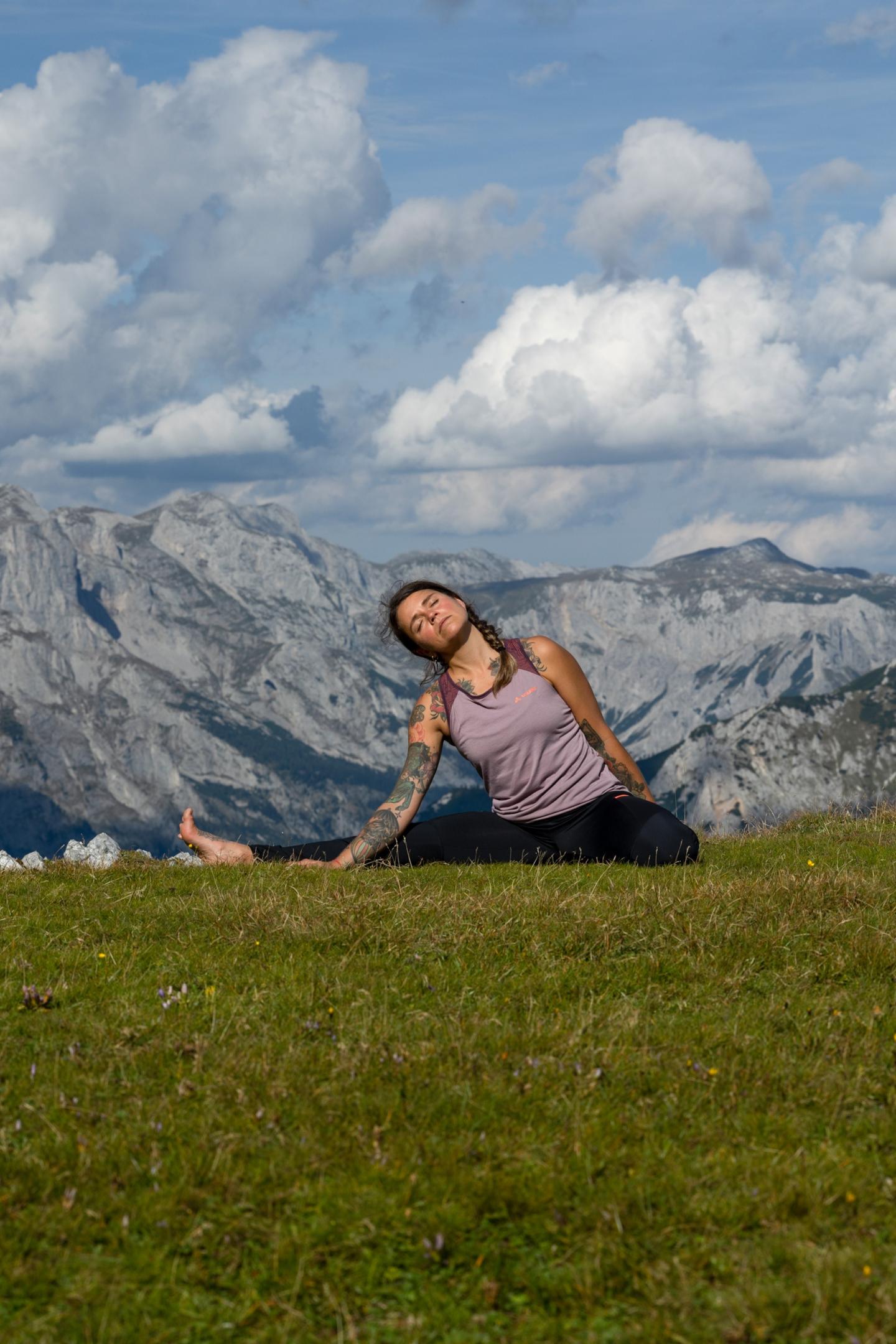

In addition, deep breaths in the fresh air are simply good for you and easier than in closed, often stuffy rooms. In everyday life, many of us spend a lot of time indoors, which is why the need to go outside after a day's work is great and understandable.
Outdoor yoga leads to a greater overall experience than indoor yoga. You not only connect with yourself, but also with the nature that surrounds you. This inevitably happens and makes for a unique experience.
During outdoor yoga practice, the deep connection to the earth becomes particularly palpable. This leads practitioners to a deep inner peace, a feeling of security, relaxation and freedom.
Deep breaths, a possible far-reaching view from the mountain and the feeling of connection provide great moments of happiness.
What should you look out for Outdoor yoga?
- A sufficiently thick yoga mat (stones, roots etc. can be very uncomfortable)
- Have enough drinking water with you
- Depending on the weather, pack suitable clothing and sun protection (here you can find Romana's favorite products).
- Pay attention to the time of day - I advise against practicing in the midday heat
- Good shoes for the approach to the yoga spot
- Insect repellent, e.g. against mosquitoes
- Good air conditions
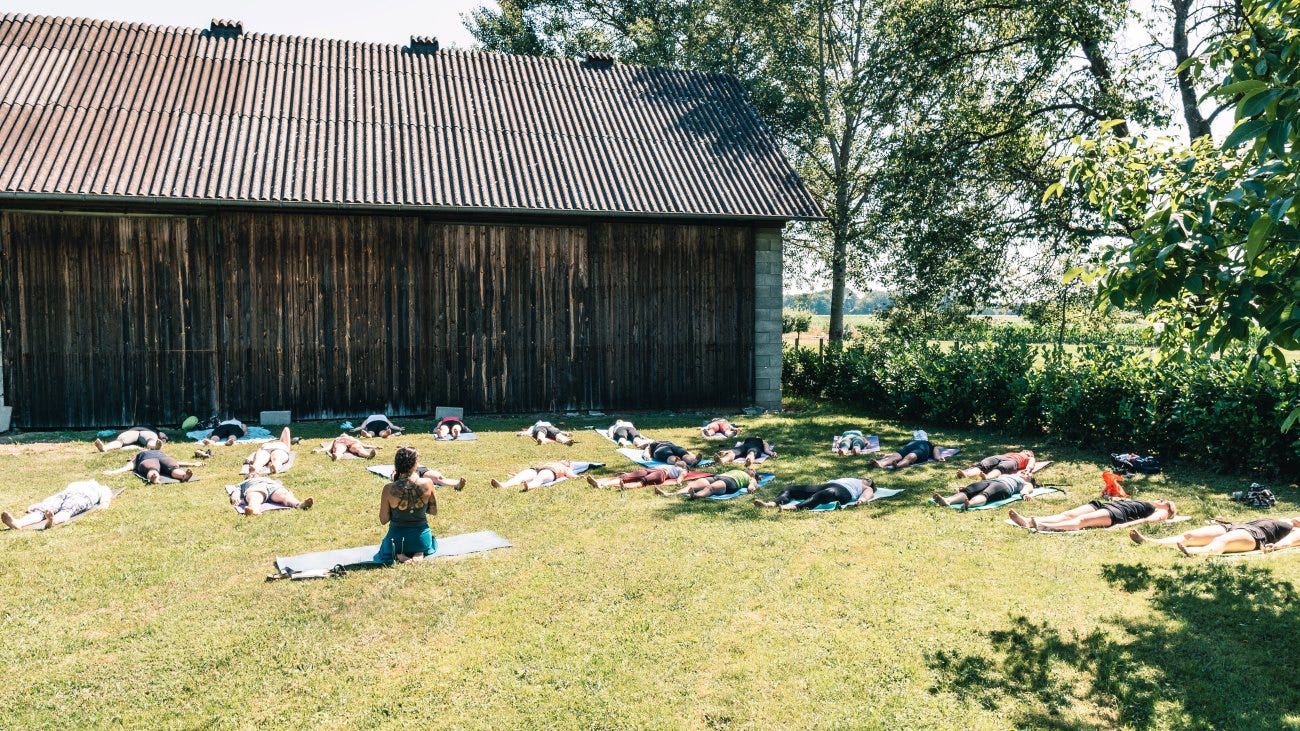

- Scopi Cap unisexRating:80%€37.00Incl. VAT, plus shipping free delivery
With recycled PET bottles
- Scopi fleece jacket women’sRating:100%€137.00Incl. VAT, plus shipping free delivery
With recycled material
- Spirit II T-shirt men's€37.00Incl. VAT, plus shipping free delivery
made from certified organic cotton
- Scopi wind jacket women'sRating:100%€142.00Incl. VAT, plus shipping free delivery
Newly developed for textile recycling loop
- Scopi insulation jacket women's€189.00Incl. VAT, plus shipping free delivery
Newly developed for textile recycling loop
- Skomer II hiking T-Shirt women'sRating:100%€42.00Incl. VAT, plus shipping free delivery
With recycled PET bottles
- Skomer III long sleeve shirt women'sRating:100%€63.00Incl. VAT, plus shipping free delivery
With wood fibers
- Essential tights women´sRating:100%€74.00Incl. VAT, plus shipping free delivery
With recycled material
- Scopi Shorty III shorts women’sRating:100%€79.00Incl. VAT, plus shipping free delivery
Using recycled scrap tires
- Coreway pullover women'sRating:100%€84.00Incl. VAT, plus shipping free delivery
made from certified organic cotton
- Manukau II fleece jacket women’sRating:100%€137.00Incl. VAT, plus shipping free delivery
With recycled PET bottles
- Sesvenna Pro insulating jacket women’sRating:100%€263.00Incl. VAT, plus shipping free delivery
With recycled material
- Monviso fleece hooded jacket women’sRating:100%€121.00Incl. VAT, plus shipping free delivery
With recycled material
- Livigno Halfzip II fleece jumper women’sRating:100%€74.00Incl. VAT, plus shipping free delivery
With recycled material
- Monviso 26 - ski touring backpack 26 litersRating:100%€179.00Incl. VAT, plus shipping free delivery
With recycled material
- Scopi lightweight rain jacket women´sRating:100%€263.00Incl. VAT, plus shipping free delivery
Protects eco-friendly from rain - fully without PFC
- Redmont T-shirt III women’sRating:100%€47.00 €32.90Incl. VAT, plus shipping free delivery
made from certified organic cotton
Why are hiking and nature Nature so good for the soul?
Especially nowadays, we experience a lot of pressure to perform in society, both from outside and inside. Expectations of employees or the self-employed are very high. Having to create or achieve something, keeping up with others or wanting to stand out from others - privately or at work - we are constantly in comparison, which creates enormous pressure.
As the saying goes: "We feel comfortable in nature because it doesn't pass judgment on us." This is very true. The need for freedom, which each person defines for themselves, and the desire to break out of everyday life are becoming ever greater.
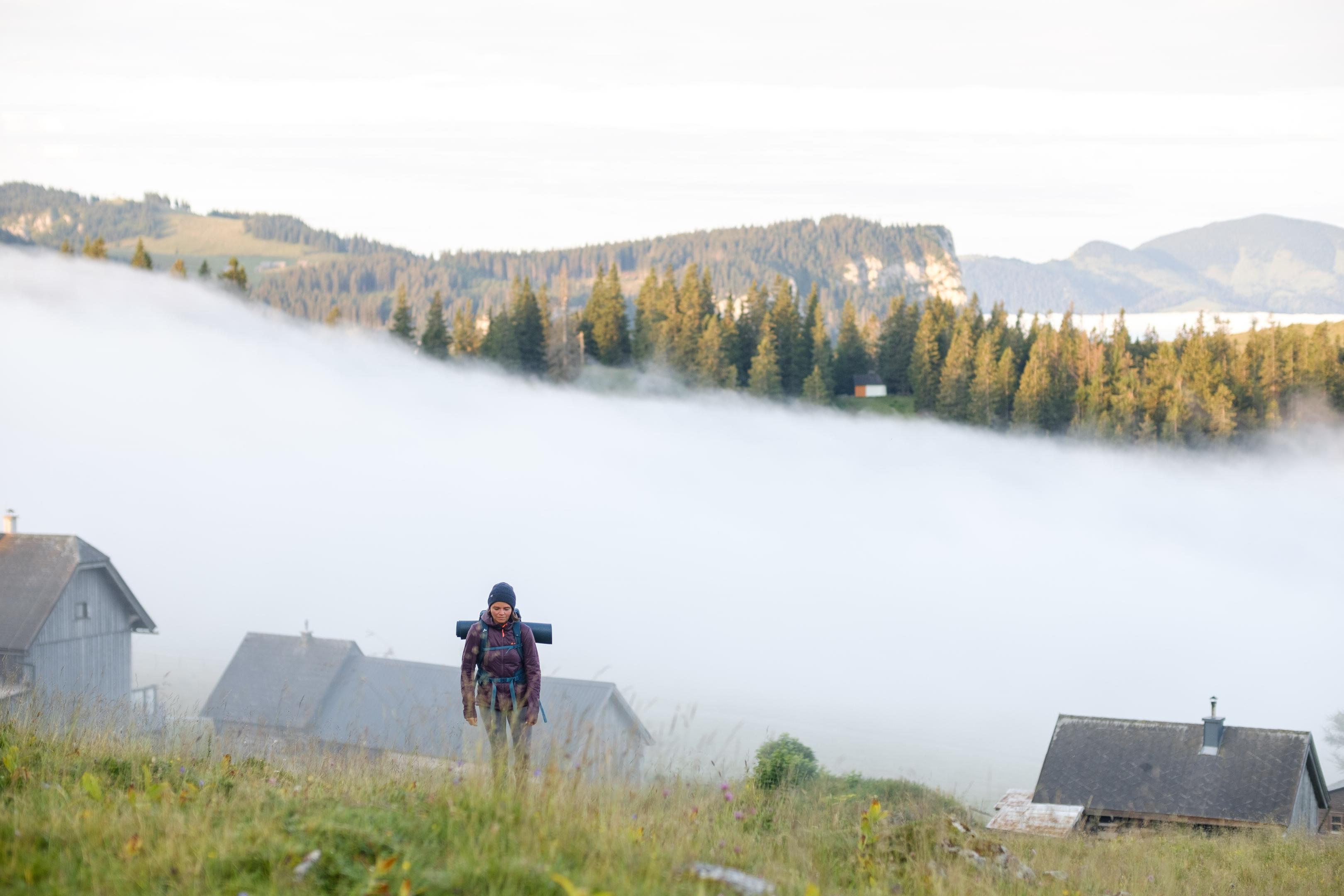

Nature, and the mountains in particular, offer an ideal place to relax. In Japan, shinrin-yoku - forest bathing - i.e. being mindful in nature, has been a recognized form of therapy for slowing down and relaxing since the 1980s.
The color green is particularly present in nature and has a calming effect on us humans. We perceive green as particularly calm and natural. From a psychological point of view, we also associate it with hope, happiness, contentment and regeneration. So we intuitively go out into nature and into the mountains to absorb the power of the color green.
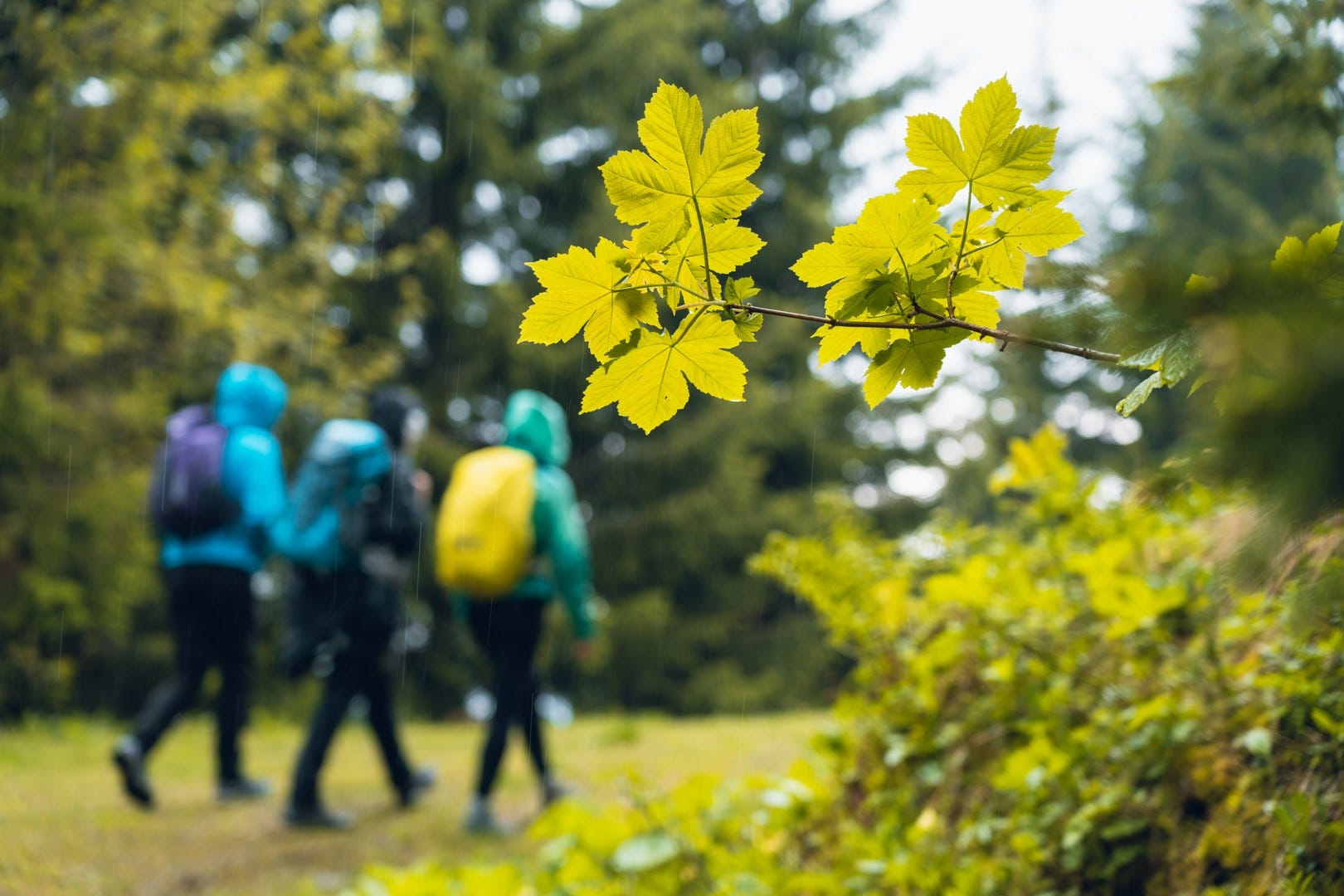

Hiking is an optimal, sustainable form of exercise - from the heart to the hormones. The continuous, prolonged exertion during mountain hiking strengthens the cardiovascular system and builds up muscles. Sure-footedness, balance and coordination are trained. Studies show that exercise in nature has a positive effect on low moods and even depression.
"Nature" (lat.) means birth - so after a long time in nature, be it after a hike or an outdoor yoga practice, we often feel "reborn".
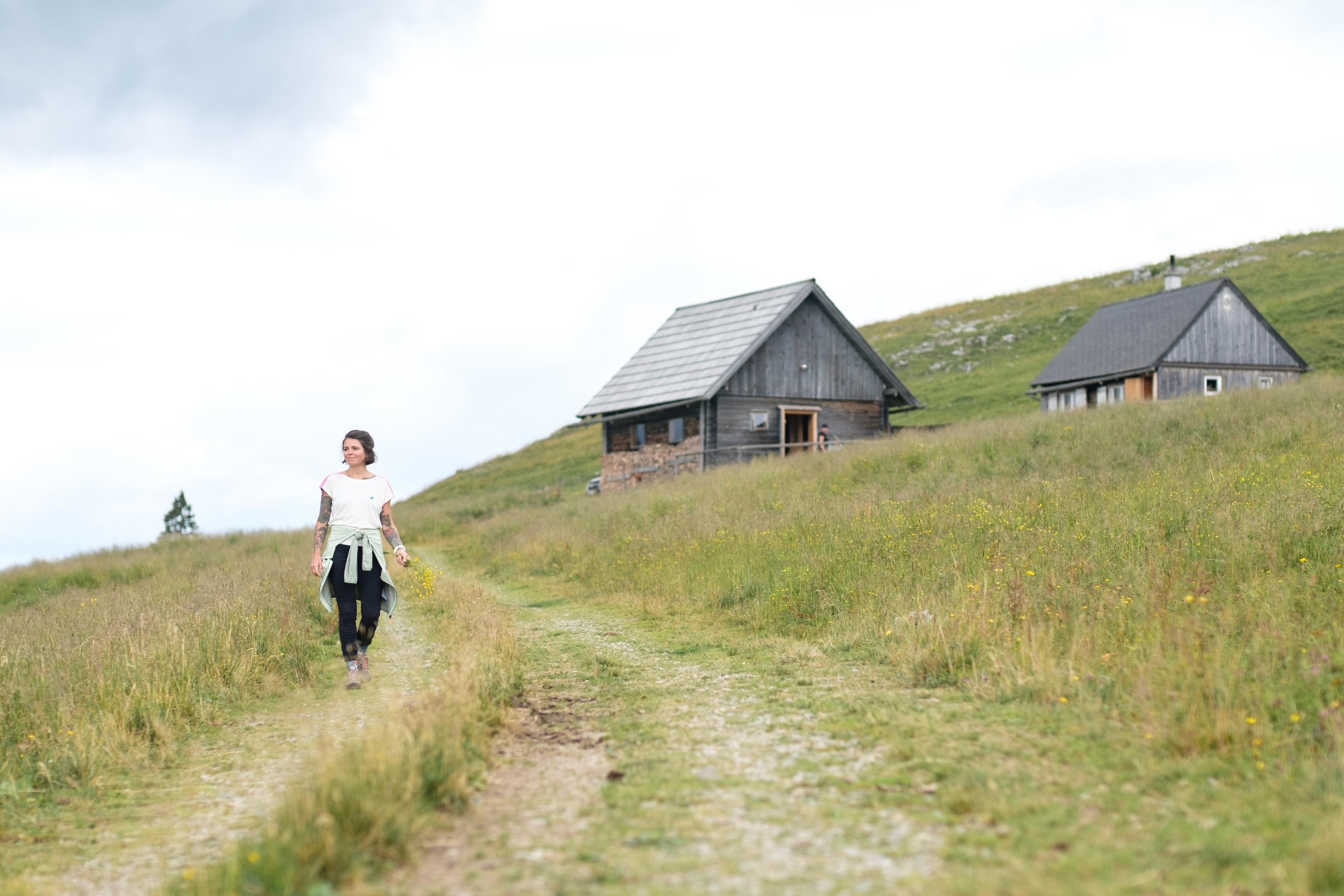

Endorphins, the so-called happiness hormones, are increasingly released during exertion and beautiful sights and put hikers in a good mood. Adrenaline, the body's own stress hormone, is released during challenging passages on the mountain, such as steep crossings or narrow, exposed climbs where concentration and skill are required, which increases performance and keeps us alert and active.
Philosophical aspects of Hiking
In addition to the physical and mental benefits of hiking, the philosophical aspects should not be ignored.
Experiencing mountains and nature allows for a deeper dialog. When you look from a mountain peak over valleys to the horizon, your mind expands. What you see leaves a mark on your mind.
Hiking has meditative qualities. The steady rhythm of walking allows us to let our minds work in peace. Changes in the landscape stimulate mental leaps and help to release mental blocks.
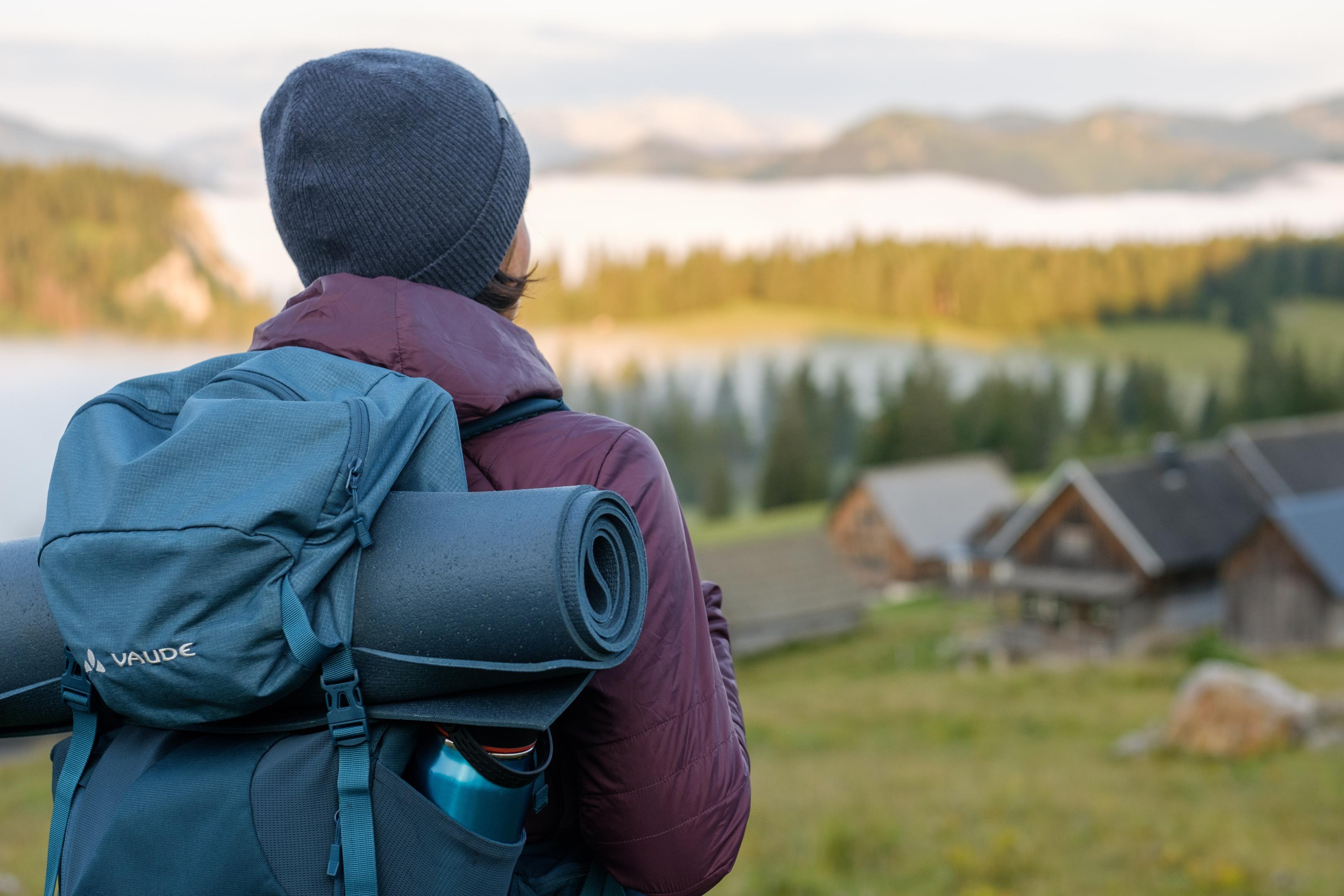

- Wizard 18+4 - Hiking backpackRating:60%€137.00Incl. VAT, plus shipping free delivery
With recycled PET bottles
- Wizard 24+4 hiking backpackRating:100%€158.00Incl. VAT, plus shipping free delivery
With recycled PET bottles
- Skomer Zip 22 liters hiking backpack women's€126.00Incl. VAT, plus shipping free delivery
With recycled PET bottles
- Wizard 30+4 liters hiking backpack€168.00Incl. VAT, plus shipping free delivery
With recycled PET bottles
- Brenta 24 liters hiking backpack€147.00Incl. VAT, plus shipping free delivery
With recycled PET bottles
- Agile Air 18 hiking backpack women´s€95.00Incl. VAT, plus shipping free delivery
With recycled material
- Jura 18 liters hiking backpack€116.00Incl. VAT, plus shipping free delivery
With recycled PET bottles
- Uphill Air 24 Lightweight backpack€147.00Incl. VAT, plus shipping free delivery
Using recycled scrap tires
- Skomer Tour 34+ liters hiking backpack women's€179.00Incl. VAT, plus shipping free delivery
With recycled PET bottles
- Agile Air 20 hiking backpackRating:80%€95.00Incl. VAT, plus shipping free delivery
With recycled material
- Uphill Air 18 Lightweight backpack€126.00Incl. VAT, plus shipping free delivery
Using recycled scrap tires
- Skomer 18 liters hiking backpack women's€126.00Incl. VAT, plus shipping free delivery
With recycled PET bottles
- Bike Alpin Pro 28 + liters mountain bike backpack€200.00Incl. VAT, plus shipping free delivery
With recycled PET bottles
- Brenta 30 liters hiking backpack€158.00Incl. VAT, plus shipping free delivery
With recycled PET bottles
- Brenta 36+6 liters hiking backpack€179.00Incl. VAT, plus shipping free delivery
With recycled PET bottles
Conclusion: Yoga and hiking - perfect companions for a healthy life
Yoga and hiking are two ideal companions for a healthy and balanced life. Both create space - in the lungs and in the mind - as well as a feeling of freedom - in the heart and in the spirit. Yoga and mountain hiking challenge us to sharpen our senses and be in the here and now. Two activities in which we can encounter ourselves, our inner nature and the nature around us again and again.
For a happy, healthy life and a mindful approach to nature.
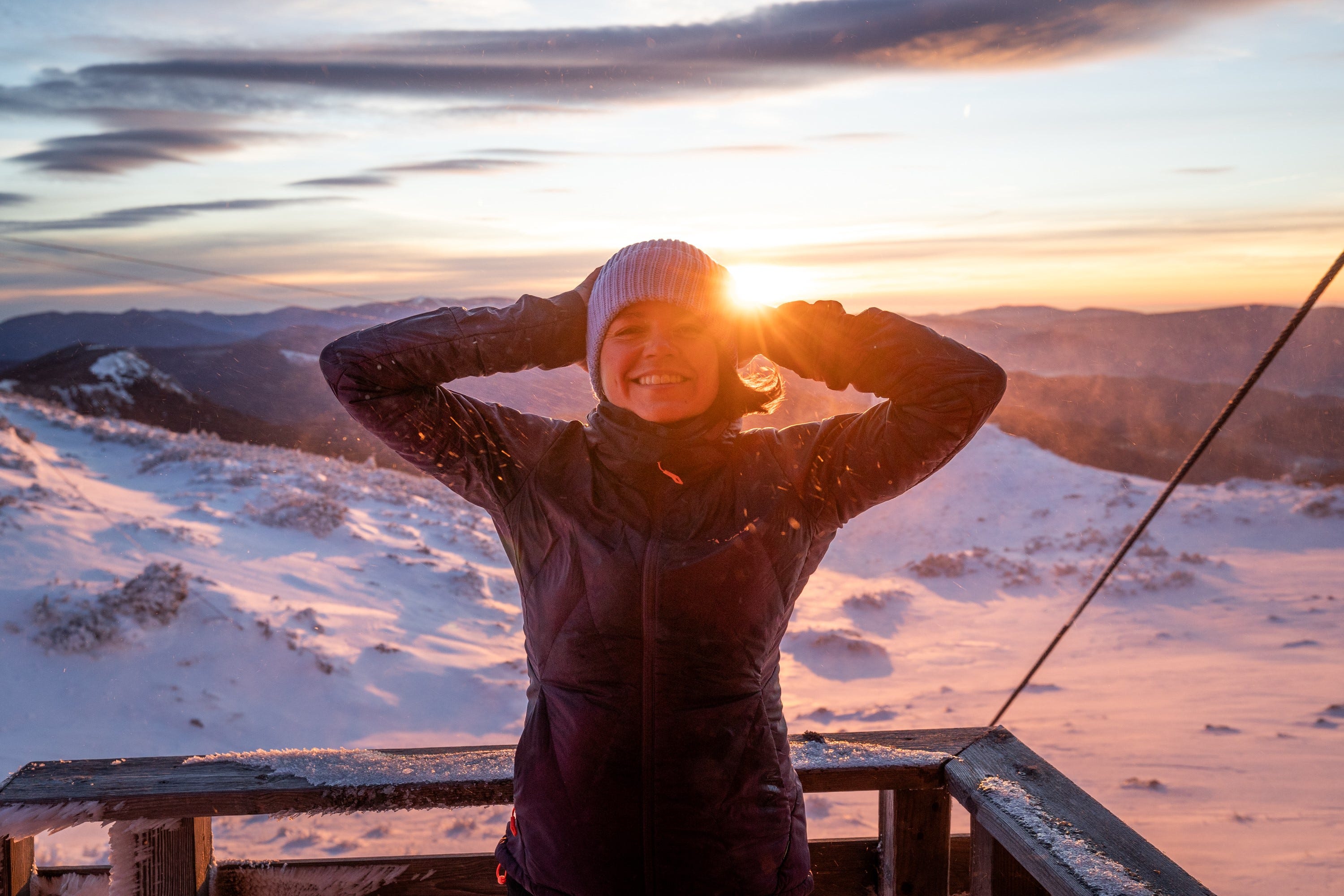

- Tamor fleece jacket women's€100.00 €70.00Incl. VAT, plus shipping free delivery
With recycled material
- Tamor fleece jacket men's€100.00 €70.00Incl. VAT, plus shipping free delivery
With recycled material
- Neyland vest men's€105.00Incl. VAT, plus shipping free delivery
Newly developed for textile recycling loop
- Freney VI insulation jacket women's€200.00Incl. VAT, plus shipping free delivery
With recycled material
- Elope II softshell jacket women’s€189.00Incl. VAT, plus shipping free delivery
With recycled PET bottles
- Skomer fleece jacket women's€105.00Incl. VAT, plus shipping free delivery
Newly developed for textile recycling loop
- Skomer hoodie women’s€116.00Incl. VAT, plus shipping free delivery
Newly developed for textile recycling loop
- Skomer print T-shirt III women's€47.00Incl. VAT, plus shipping free delivery
With recycled material
- Skomer III long sleeve shirt women'sRating:100%€63.00Incl. VAT, plus shipping free delivery
With wood fibers
- Skomer II hiking T-Shirt women'sRating:100%€42.00Incl. VAT, plus shipping free delivery
With recycled PET bottles
- Elope II bermuda shorts women's€105.00Incl. VAT, plus shipping free delivery
With recycled PET bottles
- Skomer III hiking trousers women's€105.00Incl. VAT, plus shipping free delivery
With recycled PET bottles
- Skomer bermuda shorts women's€89.00Incl. VAT, plus shipping free delivery
With recycled PET bottles
- Backpack rain poncho hiking unisex€105.00Incl. VAT, plus shipping free delivery
Protects eco-friendly from rain - fully without PFC
- Freney VI insulation jacket men's€200.00Incl. VAT, plus shipping free delivery
With recycled material
- Neyland hoodie men's€116.00Incl. VAT, plus shipping free delivery
Newly developed for textile recycling loop
- Neyland SC fleece jacket men's€105.00Incl. VAT, plus shipping free delivery
Newly developed for textile recycling loop
- Elope II bermuda shorts men's€105.00Incl. VAT, plus shipping free delivery
With recycled PET bottles


